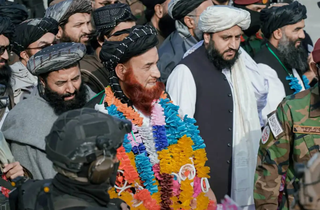Their repatriation marks the end of Afghan detentions at the facility, raising questions about its future and the fate of remaining detainees.
Sabir, a resident of Logar province, was apprehended by US forces in 2002 and sent to Guantanamo via Bagram prison the same year. Karim, hailing from Khost province, was detained by Pakistani authorities in 2003 before being handed over to the US and transferred to the American detention camp. Both men, along with countless others, endured years of captivity and questionable legal proceedings under the pretext of the US "War on Terror" campaign.
Following their release from Guantanamo in 2017, Sabir and Karim were relocated to Oman, where they resided under surveillance for several years. The exact details of their release and subsequent negotiations remain unclear, but the Taliban-led Islamic Emirate of Afghanistan (IEA) has claimed credit for facilitating their repatriation. This follows the return of another Afghan detainee, Basher Noorzai, in 2023, also reportedly mediated by the IEA.
The news of Sabir and Karim's return has understandably triggered mixed reactions. While families and loved ones celebrate their release, human rights groups and legal experts urge caution, highlighting the lack of transparency surrounding the process and the continued detention of dozens of men without charge or trial at Guantanamo. The role of the IEA in these repatriations raises further questions about their evolving relationship with the West and their commitment to international human rights standards.
The closure of the Afghan chapter at Guantanamo serves as a reminder of the long and complex legacy of the detention camp. With 35 detainees still languishing within its walls, questions regarding their fate and the future of the facility itself remain unanswered. The Biden administration has expressed a desire to close Guantanamo, but political and logistical hurdles continue to impede progress.
As Sabir and Karim begin their reintegration into Afghan society, the global focus shifts towards the broader implications of their repatriation. Their stories resonate with the experiences of countless detainees who remain behind bars, highlighting the need for continued efforts towards accountability, justice, and the ultimate closure of this controversial chapter in global security history. (ILKHA)



 Dünya
Dünya
 Güncel
Güncel
 Röportaj
Röportaj
 Dünya
Dünya
 Dünya
Dünya
 Güncel
Güncel
 Güncel
Güncel
 Güncel
Güncel
 Güncel
Güncel
 Dünya
Dünya





